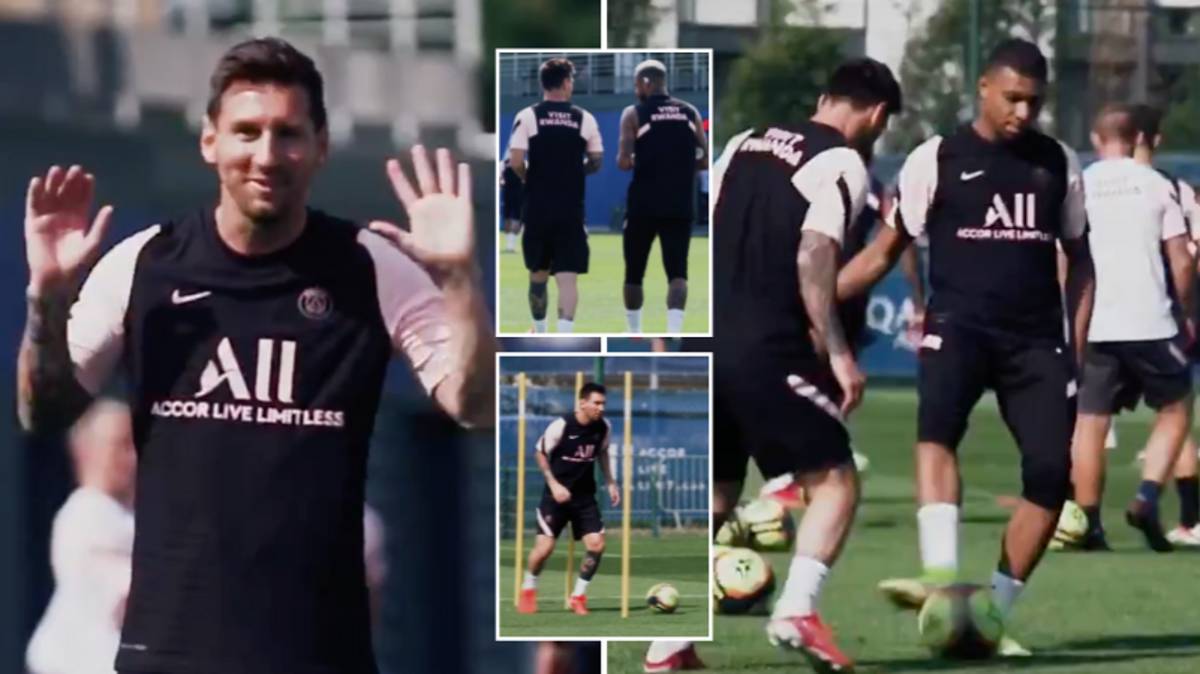Inews
“Yeah but they’ll make the money back in shirt sales” is a phrase frequently seen when a global superstar makes a big-money move. See: David Beckham, Cristiano Ronaldo, and now, Lionel Messi.
Messi, 34, has signed a two-year deal at Paris Saint-Germain with the option of a third year, and will earn a reported signing-on fee of €25m (£21.2m) and a further €25m per year (approximately £400k per week) in wages minimum.
That means, despite arriving as a free agent, PSG will pay €100m for Messi’s services if the Argentine stays for three years.
For a team also boasting Kylian Mbappe, Neymar and Sergio Ramos among a host of other stars, Messi’s arrival adds to their significant wage bill, and while PSG president Nasser Al-Khelaifi insists the transfer is within the rules, there have been reports the French club could sell up to 10 players to lighten their expenses.
But what about shirt sales? Surely the thousands of supporters seeking a “Messi 30” shirt will help the club recoup some of the cost of signing the six-time Ballon d’Or winner?
Well, not as much as you might think, with Piers Morgan’s tweet suggesting PSG will make the money back in six months being debunked by several commentators.
PSG will get their Messi money back in shirt sales in six months. Great business. pic.twitter.com/wOQKgv9I4Z
— Piers Morgan (@piersmorgan) August 10, 2021
The idea that clubs make a significant amount of money from shirt sales has been dubbed a myth, for it is the manufacturers who pocket the majority of cash spent on replica jerseys and beyond.
“The club is normally on around about seven per cent per shirt,” Kieran Maguire, author of The Price of Football, tells i.
“It’s good news for manufacturers, the players will have a slice of every shirt sale because there’ll be intellectual property rights connected with them.
“The way most deals operate, you get a flat fee from Nike or Adidas, for example, plus a percentage. We’ve seen Liverpool accept a lower flat fee and 20 per cent, but the standard deal in the Premier League is seven per cent on each shirt.”
Estimating what PSG could make from Messi shirt sales
In 2019, PSG signed a new deal with Nike until 2032, and the club are said to make €80m (£67.8m) a year from that sponsorship.
In turn Nike are responsible for manufacturing the kit and shipping the product out globally – hence why they earn the majority from sales.
On Nike’s UK website it is possible to buy a Messi top for £82.95 – or £117.95 if you fancy the “Match” version.
Using Maguire’s estimate of seven per cent, and using a round figure (and also near halfway between the two aforementioned prices) of £100 for every Messi top, then the club are making £7 per shirt.
If PSG were to sell one million Messi shirts, they could therefore make £7m – some £14.2m short of the reported £21.2m-per-year wages he is now on.
“If you’ve got a €25m contract for a player, even if we say generously you’re on 10 per cent, you’ve got to sell €250m worth of shirts. That’s an awful lot of shirts,” Maguire adds.
“PSG sold 150,000 shirts [on their website] and that makes you around a million, which is good, but it isn’t going to get you very far with Messi’s wages.
“They’re also not going to do that every day. There’s going to be a huge amount of initial interest which will then tail off.”
With Messi earning around £85m if he plays for PSG for three years, more than 12 million shirts would need to be sold for PSG to recoup the money spent on the Argentine in sales – going by Magui…



